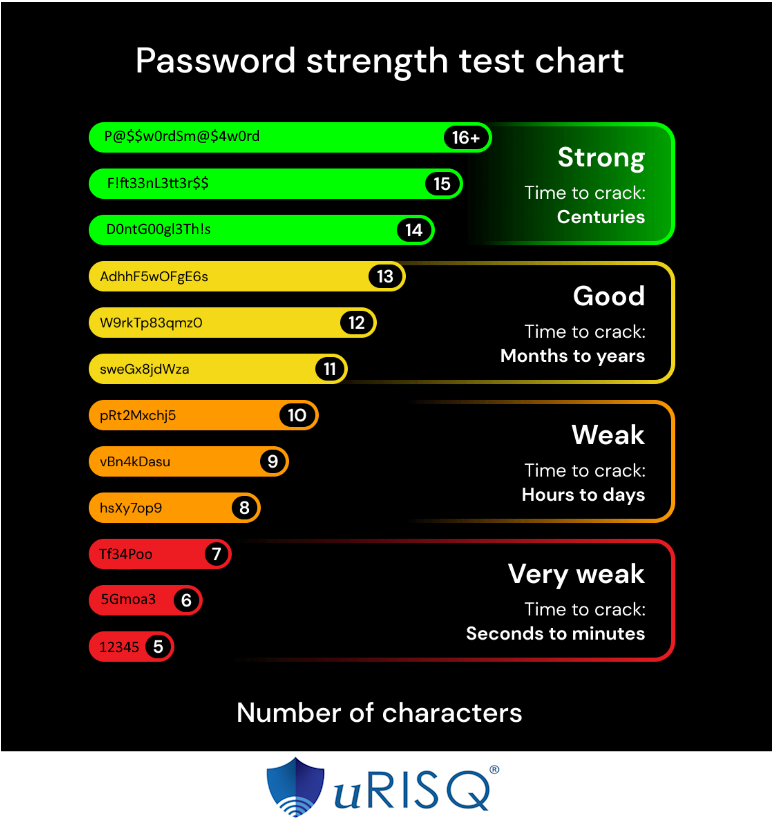NIST’s New Password Guidelines: No Tricks, Just Treats for Cybersecurity Awareness Month! 🎃👻
Just in time for Halloween and Cyber Security Awareness Month, the National Institute of Standards and Technology (NIST) has cooked up some new password guidelines – and trust us, they’re more of a treat than a trick!
Gone are the days of terrifyingly complex passwords like “Pa$$w0rd123!” that haunt your memory. Instead, NIST has decided to let us off the hook, making passwords less of a nightmare for everyone.
According to NIST’s latest draft (SP 800-63-4) for Digital Identity, there’s no need for that spooky mix of uppercase, lowercase, numbers, and special characters anymore. No more waking up in a cold sweat, trying to remember if you used a capital “P” or added a “!” at the end. And the best part? No more changing your password every 60 or 90 days like it’s some kind of full moon werewolf transformation!
What’s New in the Crypt?
NIST’s new password rules are all about making things less creepy and more comfy. Here’s the lowdown:
- Length Over Complexity: The new rule is simple – the longer, the better! No more frantically scrambling for special characters. Passwords should be at least 8 characters, but NIST suggests making them even longer – up to 15 characters, because the bigger your password, the harder it is for those ghoulish hackers to crack.
- No Scary Deadlines: Changing your password every couple of months? Nope, not anymore! NIST is saying you only need to reset passwords if there’s a real reason, like a data breach. Making people change passwords too often was like asking them to carve a new pumpkin every week – it just led to sloppier, more predictable results.
- Banishing Knowledge-Based Authentication: Remember those creepy security questions like “What’s your mother’s maiden name?” that never seemed very secure? NIST wants them gone, too. Because let’s be real, any ghoul with internet access could find out your first pet’s name or the street you grew up on.

A Password as Strong as Frankenstein’s Monster 🧟
NIST’s 2017 guidelines encouraged complex passwords with a mix of characters, but users ended up creating passwords that were more like zombies – easy to predict and not very effective. Common combos like “Pa$$word123!” were a favorite haunt for cyber ghouls, who could crack them faster than you could say “Boo!”
The latest guidelines focus on password length, which is like giving your password a suit of armor. Longer passwords are harder to crack through brute-force attacks and can be easier to remember – especially if you’re using phrases or sentences that aren’t spooky to you, but would be a real scare for hackers.
Only Reset When You Smell Something Rotten 🧛♂️
Forget the old rule that made you reset your password every 60 or 90 days. That’s like checking your closet for monsters every night – exhausting and unnecessary. Instead, NIST is now saying you should only change your password if there’s a real problem, like a credential breach. This way, you’re not making things worse by choosing weaker passwords just because you’re forced to.
The Witchy Language Shift
The spookiest part? NIST isn’t just recommending these changes – they’re making them a requirement! In the past, NIST used words like “should not,” but now they’re saying “shall not.” This means that CSPs (Credential Service Providers) shall not enforce password complexity rules like requiring symbols, numbers, or a mix of character types. And no more scary deadlines – users shall not be forced to change their passwords regularly unless there’s evidence of compromise.
Let Your Password Be the Hero, Not the Ghost
This Halloween, don’t let your passwords haunt you. Take NIST’s advice, and make them long and memorable – like a spooky phrase only you would know. But leave the “123!”s and awkward special characters for the ghosts and goblins. With these new guidelines, your digital life can be a lot less creepy.
So, take a deep breath, grab some candy, and relax – no need to lose sleep over scary passwords this Cybersecurity Awareness Month. NIST’s got your back, and your data’s ready for a cozy, less complicated future! 🎃